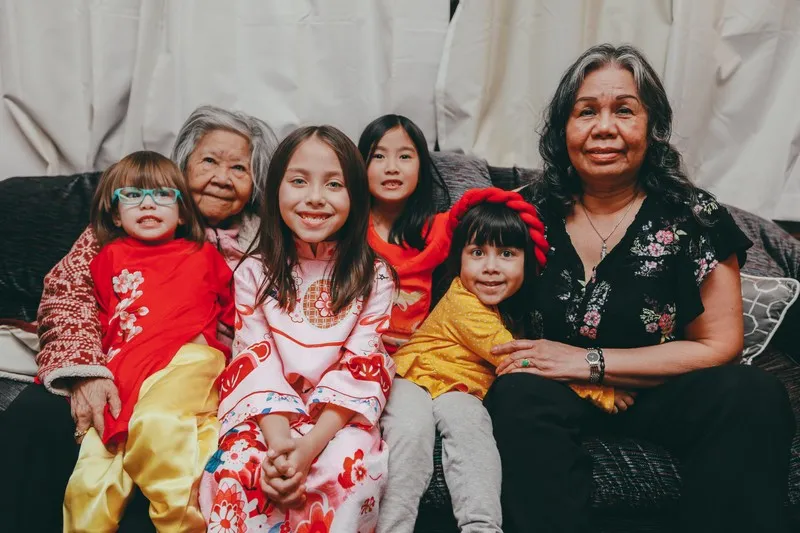Table of Contents
- The Concept of Generational Assimilation
- Factors Influencing Generational Assimilation
- Theories of Generational Assimilation
- Challenges and Opportunities in Generational Assimilation
- Conclusion
Generational assimilation is a vital concept within sociology that explores how different generations of immigrants adapt and integrate into a host society. It examines the complex processes through which immigrant families and their descendants become part of the social, cultural, and economic fabric of their new country. This article delves into the nuances of generational assimilation, highlighting its significance, stages, and the factors that influence this phenomenon. By understanding generational assimilation, we can gain a deeper appreciation for the challenges and achievements of immigrant communities and the evolving nature of cultural identity in multicultural societies.
The Concept of Generational Assimilation
Generational assimilation refers to the process by which immigrant families and their descendants gradually adopt the cultural norms, values, and practices of the host society over multiple generations. This process is not uniform; it varies widely based on numerous factors, including the immigrant group’s country of origin, the socioeconomic context of the host society, and the specific experiences of each family. The concept of generational assimilation helps sociologists and policymakers understand how integration occurs and identify the challenges and opportunities faced by immigrant communities.
First Generation: The Immigrant Experience
The first generation of immigrants is characterized by individuals who have migrated from their home country to a new host country. This generation often faces significant challenges, such as language barriers, cultural differences, and economic hardships. Their primary focus is typically on establishing a stable life and providing opportunities for their children. Despite these challenges, the first generation often maintains strong ties to their country of origin, preserving their native language, customs, and traditions. This dual existence creates a unique cultural dynamic, where individuals navigate between their heritage and the demands of the new society.
Second Generation: Bridging Two Worlds
The second generation, composed of the children of immigrants, plays a crucial role in the assimilation process. Born and raised in the host country, this generation is often more fluent in the host society’s language and more familiar with its cultural norms. They serve as cultural brokers, bridging the gap between their parents’ traditions and the mainstream culture. However, this position can also lead to identity conflicts, as they navigate the expectations of both their familial heritage and the broader society. The second generation often strives to balance respect for their cultural roots with the desire to fit into the dominant culture, leading to diverse and multifaceted identities.
Third Generation and Beyond: Integration and Identity
By the third generation, many descendants of immigrants have become fully integrated into the host society. They may have little to no direct connection to their ancestral homeland and primarily identify with the host country’s culture. However, the process of assimilation is not always linear, and some third-generation individuals may experience a resurgence of interest in their heritage, seeking to reconnect with their cultural roots. This phenomenon, known as ethnic revival, highlights the complexity of generational assimilation and the enduring influence of cultural identity across generations.
Factors Influencing Generational Assimilation
Several factors influence the pace and nature of generational assimilation. These factors include the socioeconomic status of immigrant families, the level of acceptance and discrimination within the host society, and the availability of community support networks. Understanding these factors is crucial for developing policies and practices that promote successful integration and address the unique needs of immigrant communities.
Socioeconomic Status
The socioeconomic status of immigrant families significantly impacts their assimilation trajectory. Families with higher levels of education, skills, and financial resources are often better equipped to navigate the challenges of integration. They can access better educational opportunities for their children, secure stable employment, and participate more fully in the host society’s social and cultural life. Conversely, families facing economic hardships may struggle with limited access to resources, hindering their ability to integrate effectively.
Acceptance and Discrimination
The level of acceptance and discrimination within the host society also plays a critical role in generational assimilation. Societies that are inclusive and welcoming create an environment where immigrants and their descendants can thrive and feel a sense of belonging. In contrast, societies marked by prejudice and discrimination can impede assimilation, leading to social exclusion and marginalization. The experiences of acceptance or discrimination shape the identity and sense of belonging of immigrant families and influence their overall assimilation process.
Community Support Networks
Community support networks, including ethnic enclaves, religious institutions, and cultural organizations, provide vital resources for immigrant families. These networks offer social, emotional, and practical support, helping families navigate the challenges of integration while maintaining connections to their cultural heritage. Strong community support networks can facilitate the assimilation process by providing a sense of solidarity and belonging, while also preserving cultural traditions and practices.
Theories of Generational Assimilation
Get the full article AD FREE. Join now for full access to all premium articles.
View Plans & Subscribe Already a member? Log in.





